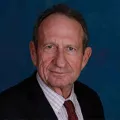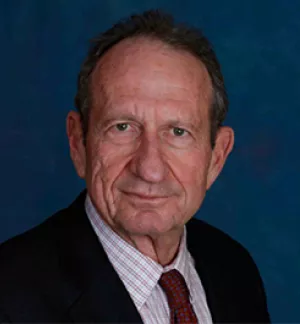PRESIDENT BUSH salvaged what for him was an otherwise dismal week by nominating Robert Gates to be secretary of defense. Mr. Gates is an experienced Washington hand with the right temperament to change the administration's thinking about our mission in Iraqand to make much-needed long-term changes in how we defend our nation.
Some critics point out that Mr. Gates spent most of his career in C.I.A.'s intelligence directorate, and question whether that background is appropriate for the Pentagon job. Well, as somebody who has served at both institutions, I can't think of any better pedigree. C.I.A. intelligence analysts are dedicated to giving an objective estimate of what is really happening to policymakers who are often invested in particular outcomes. This sort of neutral mind-set is just what President Bush needs and the country expects.
The big question he must answer on Iraq is this: Are we making progress toward meeting our minimum objectives -- helping the Iraqis maintain security, establishing a working government and restoring basic services? If the answer is no, as I suspect, then Mr. Gates should tell the president that it is time to withdraw. Better sooner than later to avoid more lives lost and more treasure spent.
Contrary to conventional wisdom on both sides of the aisle, the consequences of withdrawal need not be catastrophic to American interests in the region. Secretary of State Condoleezza Rice; the national security adviser, Steve Hadley; and Mr. Gates need to develop a secondary track, simultaneous with a military withdrawal, centered on new economic and diplomatic initiatives in the Middle East to re-establish America's credibility and purpose.
In particular, we must take a new approach to Iran: its actions can encourage or dampen civil violence in Iraq, its oil exports are important to world supply and its uranium enrichment program puts it on a path to a nuclear bomb. Two years ago, Mr. Gates and the national security adviser in the Carter administration, Zbigniew Brzezinski, led a Council on Foreign Relations committee that recommended a more active approach to Irancentered on a 'compartmentalized process of dialogue, confidence building and incremental engagement.' Mr. Gates's work on the committee demonstrated his pragmatic approach to foreign policy and his ability to work effectively with those of differing ideologies.
Yes, there is an aspect of irony in having a former intelligence director become secretary of defense after the Iraqi weapons-of-mass-destruction intelligence failure was used to justify our 2003 invasion. And it is also true that the cultures of the C.I.A. and the Pentagon are very different. But Mr. Gates would not be the first top director of central intelligence to become secretary of defense. James Schlesinger moved from the intelligence directorship to the Pentagon in the 1970s, and he is remembered for his fierce independence from the White House.
Of course, there will be much more on the new secretary's plate than just Iraq. First, I hope that Mr. Gates will quickly re-establish the trusting relationship with senior military leaders -- the chairman the Joint Chiefs of Staff, the heads of the combat and supporting joint commands -- that was the hallmark of Secretary of Defense William Perry's successful tenure in the 1990s.
Next year's Pentagon budget, at greater than $530 billion, is giving Congress sticker shock. Down the road, modernization costs will only increase and there will be a large bill to pay to 'reset' the Army and Marine Corps readiness and equipment to acceptable levels after we leave Iraq.
Mr. Gates is well suited for making his case to Congress. He is not, however, a technology or acquisitions expert, and he will need to listen to others in establishing a sound and affordable multiyear program to reshape the military to meet today's threats.
Perhaps nobody is better suited than Mr. Gates for reforming the military's intelligence operations. The revamping of the government's intelligence community in 2004 has been a mixed success. One important shortcoming is the Defense Department's continued use of its considerable intelligence budget to run its programs in isolation from the other intelligence agencies.
Mr. Gates surely understands the need to integrate the military's intelligence operations with those of other agencies. The Pentagon should stop competing with other agencies over collection and dissemination of information, and become more of an informed user of intelligence gathered by the multiagency intelligence community.
Last, a few will raise questions, based on Mr. Gates's involvement in the Iran-contra affair, about his ability to control covert operations. In this, I have full confidence in Mr. Gates's judgment. When I was the C.I.A. chief, my job was made easier by the way Mr. Gates had structured the partnership between the directorate of operations and the directorate of intelligence during his tenure in order to ensure that operations were launched only after disciplined analytic thinking of consequences.
To President Bush, for his choice of Robert Gates, I say 'bravo,' a word I'll bet he has not heard a lot recently. Congress should confirm the nominee promptly, thank him for his willingness to serve, and tell him we expect great results.
John Deutch,a professor of chemistry at the Massachusetts Institute of Technology, was a director of central intelligence and a deputy secretary of defense under President Bill Clinton.
Deutch, John. “Aye, Spy.” The New York Times, November 15, 2006


